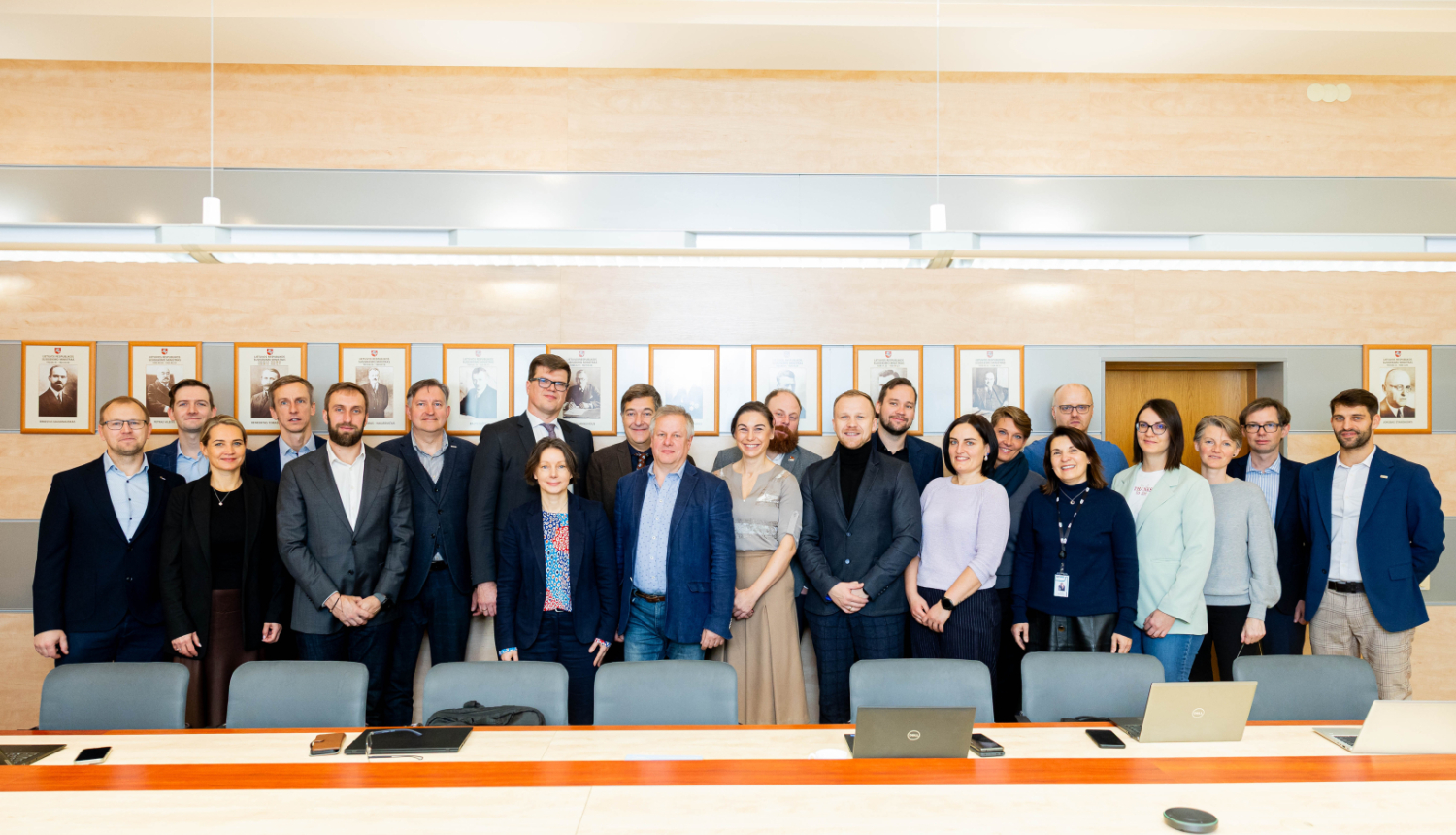BAKU, Azerbaijan, October 25. This week, a high-level meeting took place in Vilnius between representatives of the European Climate, Infrastructure and Environment Executive Agency (CINEA) and the Rail Baltica implementation organizations, Trend reports.
During the meeting, participants assessed the project’s progress and discussed upcoming construction priorities.
As part of the visit, the project’s central coordinator RB Rail AS signed a new Connecting Europe Facility (CEF) grant agreement for 295.5 million euros in EU co-financing.
In Estonia, the allocated funding will be directed toward continuing construction of the main line between Tallinn and the Estonian–Latvian border, including the development of a 10.2-kilometer double-track embankment on the Rapla–Pärnu section.
In Latvia, the financing will cover the construction of railway embankments in four southern sections of the main line, totaling 13.3 kilometers. It will also fund the technical design for electrification between Upeslejas and the Latvian–Lithuanian border (Phase 1), along with project management and oversight activities. This includes FIDIC engineer services to ensure technical supervision and compliance with global project standards, as well as design review costs.
In Lithuania, major works will focus on the Kaunas railway hub, where new overpasses and rail crossings will be built. The funding also covers technical studies and design works, including regional station infrastructure and technical design preparation for the Kaunas–Poland border section. In addition, land acquisition and related procedures will take place in the Kaunas area.
The Baltic joint venture RB Rail AS will also receive funding to continue cross-border project management and coordination, under the Project Management Agreement, co-financed equally by all three Baltic States.
“The continued support from the Climate, Infrastructure and Environment Executive Agency ensures steady progress in constructing the Rail Baltica main line. This funding allows us to move forward strategically with key project segments in all three Baltic countries,” said Marko Kivila, CEO and Chairperson of the Management Board at RB Rail AS.
During the high-level meeting, CINEA representatives and Rail Baltica project implementers discussed cross-border cooperation within the CEF funding framework. Participants also visited construction sites in Lithuania, including the bridge over the Neris River. With EU support, the total length of the completed railway embankment in Lithuania has now reached 27.7 kilometers.
“Effective cooperation and transparent communication among all involved parties are crucial to building trust and ensuring steady project implementation. This coordination helps identify challenges early, accelerate decision-making, and advance the Rail Baltica project in line with its objectives,” said Ojārs Daugavietis, Member of the Management Board and Chief Financial Officer of RB Rail AS.
The next CINEA progress visit is scheduled for November 2025 in Riga.
Rail Baltica is one of the largest high-speed rail infrastructure projects in Europe and part of the Trans-European Transport Network (TEN-T). Its goal is to enhance connectivity, strengthen regional resilience, and foster economic growth in the Baltic States. The new railway line will connect Estonia, Latvia, and Lithuania with Poland, and indirectly with Finland and the broader European rail network.
Rail Baltica will be a fully electrified standard-gauge (1435 mm) line equipped with the European Rail Traffic Management System (ERTMS) and built to meet European standards. Designed for speeds of up to 249 km/h, the railway will significantly reduce travel time between the Baltic capitals and major European cities.
The project will serve passenger, freight, and military mobility, supporting business, tourism, and cultural exchange, while making the Baltics a key hub in Europe’s transport and trade network.
RB Rail AS is a joint venture between Estonia, Latvia, and Lithuania, established to lead and coordinate the implementation of the Rail Baltica project — the first cross-border infrastructure initiative of this scale in the region.







